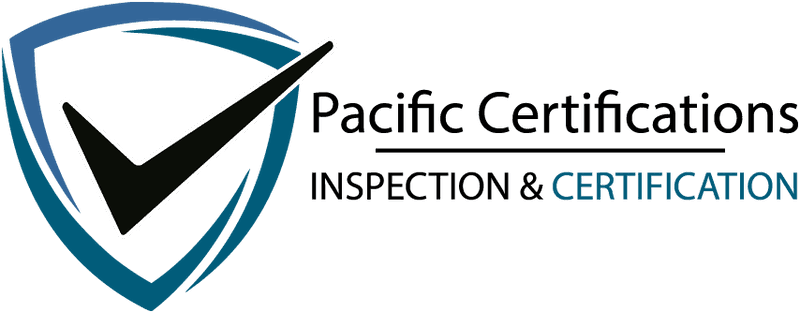
ISO Certifications for Medical and Surgical Equipment Manufacturing Businesses, Requirements and Benefits
In the ever-evolving healthcare industry, ensuring the safety and quality of medical and surgical equipment is paramount. With the increasing reliance on precision devices for critical medical procedures, adherence to internationally recognized standards has become a benchmark of trust and reliability. ISO certifications play a pivotal role in standardizing the production, design, and distribution of medical devices, ensuring global compliance.

ISO standards provide a strong framework that not only promotes operational efficiency but also emphasizes patient safety, regulatory compliance, and market competitiveness. For manufacturers of medical and surgical equipment, aligning with these standards demonstrates a commitment to quality and fosters trust among stakeholders.
Ready to achieve ISO certification for your medical and surgical equipment manufacturing? Contact us at support@pacificcert.com or call us at +91-8595603096 to start your journey.
Applicable ISO Standards for Medical and Surgical Equipment Manufacturing
Several ISO standards cater specifically to the needs of medical and surgical equipment manufacturers. Below is a detailed overview of the most relevant standards:
ISO 13485: Quality Management System for Medical Devices: ISO 13485 sets the standard for quality management systems in the medical device industry. It covers all stages, from design and development to production, installation, and servicing. This standard ensures that medical devices consistently meet customer and regulatory requirements.
ISO 14971: Application of Risk Management to Medical Devices: This standard focuses on risk management associated with the use of medical devices. By identifying, evaluating, and mitigating risks, ISO 14971 enhances the safety and reliability of devices.
ISO 9001: Quality Management Systems: While ISO 9001 is a general QMS standard, its principles of continuous improvement, customer satisfaction, and process efficiency are highly relevant to medical equipment manufacturers.
ISO 10993: Biological Evaluation of Medical Devices: ISO 10993 ensures the biocompatibility of medical devices. This standard is crucial for assessing the effects of medical device materials when they come into contact with human tissues.
ISO 20417: Medical Device Information to Be Supplied by the Manufacturer: This standard specifies the type of information manufacturers must provide with their medical devices, such as instructions for use, warnings, and maintenance requirements.
ISO 60601 Series: Safety Standards for Medical Electrical Equipment: The ISO 60601 series addresses the safety and essential performance of electrical medical equipment. It is particularly important for the development of life-supporting and monitoring devices.
ISO 14001: Environmental Management Systems: Medical device manufacturers increasingly focus on sustainability. ISO 14001 helps ensure environmentally responsible practices in manufacturing processes.
Click here to find out more applicable standards to your industry
At Pacific Certifications, we specialize in conducting audits and issuing ISO certifications for medical and surgical equipment manufacturers. As a globally recognized certification body, we are committed to providing comprehensive and impartial services to help manufacturers meet regulatory and market requirements.
Whether you need certification for ISO 13485, ISO 9001, or other applicable standards, our expertise ensures a seamless certification process. Our team of auditors conducts thorough assessments to evaluate your compliance with ISO standards, supporting your organization in achieving its operational and quality goals.
Take the first step toward ISO certification for your medical devices. Contact our experts at support@pacificcert.com or call +91-8595603096 for assistance.
Requirements of ISO Certifications for Medical and Surgical Equipment Manufacturing
To achieve ISO certification, manufacturers of medical and surgical equipment must meet the specific requirements outlined in various ISO standards. Below, the key requirements are detailed for each applicable standard:

ISO 13485: Quality Management Systems for Medical Devices
- Documented Quality Management System (QMS): Develop a comprehensive QMS that outlines quality policies, objectives, and processes related to medical device manufacturing.
- Regulatory Compliance: Ensure the QMS complies with applicable regulations for medical devices in intended markets.
- Risk-Based Approach: Implement risk management processes to evaluate and control potential risks throughout the product lifecycle.
- Control of Design and Development: Establish procedures for the design and development of devices, including validation and verification at each stage.
- Supplier and Outsourcing Controls: Assess and monitor suppliers to ensure that materials and services meet quality standards.
- Traceability: Maintain traceability of materials, components, and devices to ensure accountability and facilitate recalls if necessary.
- Corrective and Preventive Actions (CAPA): Implement systems to address non-conformities and prevent their recurrence.
ISO 14971: Application of Risk Management to Medical Devices
- Risk Management Plan: Create a plan that defines the process, responsibilities, and criteria for risk management activities.
- Hazard Identification: Identify all potential hazards associated with the medical device during its intended use.
- Risk Analysis and Evaluation: Assess the probability and severity of risks and determine whether they meet acceptable levels.
- Risk Control Measures: Implement measures to eliminate or mitigate identified risks.
- Residual Risk Evaluation: Evaluate risks that remain after control measures have been applied to ensure they are acceptable.
- Risk Management File: Maintain comprehensive documentation of all risk management activities and decisions.
ISO 9001: General Quality Management Systems
- Leadership Commitment: Top management must demonstrate a commitment to the QMS and align it with organizational goals.
- Customer Focus: Understand customer needs and strive to exceed expectations through consistent quality.
- Process-Based Approach: Define and manage interrelated processes to achieve optimal efficiency and results.
- Performance Evaluation: Monitor and evaluate the performance of processes and the overall QMS regularly.
- Continuous Improvement: Identify opportunities for improvement and implement changes to enhance effectiveness.
ISO 10993: Biological Evaluation of Medical Devices
- Material Characterization: Conduct detailed studies to identify the chemical and physical properties of device materials.
- Biological Testing: Perform biological safety tests, such as cytotoxicity, sensitization, and genotoxicity, to evaluate the device’s interaction with biological tissues.
- Toxicological Risk Assessment: Assess the risk of potential toxic effects from device materials.
- Clinical Data Evaluation: Use clinical data to support the biocompatibility of materials and the safety of the device.
ISO 20417: Medical Device Information to Be Supplied by the Manufacturer
- Labeling Requirements: Provide clear and accurate labels with essential device information, including usage instructions and warnings.
- Instruction for Use (IFU): Create comprehensive user manuals with details on device operation, maintenance, and troubleshooting.
- Unique Device Identification (UDI): Include a UDI to facilitate traceability and regulatory compliance.
- Post-Market Surveillance Information: Supply information to assist in monitoring device performance after market release.
ISO 14001: Environmental Management Systems
- Environmental Policy: Develop a policy to manage and reduce the environmental impact of manufacturing operations.
- Environmental Aspects and Impacts: Identify environmental aspects of manufacturing and evaluate their impacts.
- Compliance Obligations: Meet legal and regulatory requirements related to environmental management.
- Waste Management and Resource Efficiency: Implement measures to minimize waste and optimize resource usage.
By meeting these requirements, manufacturers ensure that their operations and products align with global best practices, fostering trust and quality assurance in medical and surgical equipment manufacturing.
Looking for ISO certification for your medical and surgical equipment manufacturing? Email us at support@pacificcert.com or give us a call at +91-8595603096 to get started.
Benefits of ISO Certifications for Medical and Surgical Equipment Manufacturing
Adopting ISO standards brings numerous advantages to medical and surgical equipment manufacturers.

Regulatory Compliance: ISO certifications help organizations meet stringent national and international regulatory requirements, such as those set by the FDA and EU MDR.
Product Quality: By adhering to ISO standards, manufacturers ensure the consistency and reliability of their products, leading to improved patient outcomes.
Market Access: ISO certifications are recognized globally, enabling manufacturers to enter new markets with ease. Compliance with these standards also fosters trust among clients and stakeholders.
Risk Reduction: ISO standards like ISO 14971 mitigate risks by identifying potential hazards early and implementing effective control measures.
Efficiency: Streamlined processes and clear documentation reduce errors and inefficiencies, resulting in cost savings and increased productivity.
The medical device industry is poised for significant growth in 2024, driven by advancements in technology and increasing demand for high-quality surgical equipment. Emerging markets are expected to play a pivotal role, with manufacturers adopting automation and AI-driven processes to enhance product design and production. Moreover, sustainability is becoming a key focus, with ISO 14001 certification gaining traction among manufacturers committed to reducing their environmental footprint.
Achieving ISO certification for your medical and surgical equipment is not just a regulatory necessity but also a strategic advantage in today’s competitive market. Partner with Pacific Certifications to ensure compliance with global standards and unlock your organization’s full potential. Our experienced auditors are here to guide you every step of the way.
Pacific Certifications is accredited by ABIS, in case you need support with ISO certification for your Medical and Surgical Equipment Manufacturing business, please contact us at support@pacificcert.com or +91-8595603096.
FAQs: ISO Certifications for Medical and Surgical Equipment Manufacturing
ISO 13485 is a quality management system standard specifically for medical device manufacturers. It ensures products meet customer and regulatory requirements, enhancing product quality and safety.
ISO 14971 provides a framework for risk management, enabling manufacturers to identify, assess, and mitigate risks associated with medical devices throughout their lifecycle.
Yes, ISO certifications are accessible to organizations of all sizes. Pacific Certifications offers tailored audit services to accommodate the unique needs of small manufacturers.
While not specific to medical devices, ISO 9001 provides valuable principles for quality management, making it a complementary standard to ISO 13485.
The duration varies depending on the organization’s readiness and the complexity of the standard. On average, it can take a few months from the initial audit to certification.
Documents such as a quality manual, risk management files, product specifications, and records of internal audits are essential for ISO 13485 certification.
Read More at: Blogs by Pacific Certifications






